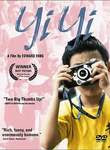
The best thing a director can say should probably be found inside the film he has made. This film is very much as simple as the ones and twos in life. The film is simply about life, portrayed across a spectrum of its span. Therefore the Chinese title of the film is Yi Yi, which literally translates to "one-one" and "one-one" means "individually" in Chinese. This signifies the film's portrayal of life through each individual member at each representing age, from birth to death.
The movie is about the currents of life. Maybe the movie is not simply about knowing half of the truth, but about knowing the wrong half of the truth.
Mr. Yang, like his colleague Mr. Hou Hsiao-hsien and many other Asian directors, prefers a fluid point of view, one not tied to any particular character; his is a slightly set-back perspective that allows the audience members to choose their own identification figures, or shift their focus of identification as the drama unfolds. Mr. Yang and Mr. Hou have both been pioneers in a long-take, long-shot style; the camera, for example, will be positioned on the far side of a room, observing the characters for long moments without a cut or a close-up as they circulate around a dining room table or a tea room. For a viewer accustomed to the continual assault of Hollywood films, with their high-impact close-ups and rapid, analytical cutting, these Asian films seem blessedly calm, cool and respectful of the viewer's ability to make his or her own judgments and connections.



